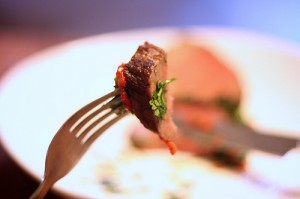What is gastric bypass dumping , and how can I avoid it? If you’ve had bariatric surgery, then you need to learn how to prevent getting “dumped.”
Dumping Syndrome or “rapid gastric emptying” is what occurs after a gastric bypass surgery when the food you eat moves through your digestive system too quickly.
Swallowed bits of food are unceremoniously “dumped” through your stomach and into your small intestines without proper digestion, leading to unpleasant side effects, such as nausea.
Dumping syndrome can happen quickly, only thirty minutes after eating, but it can also occur several hours later.
Within the first hour of eating, dumping syndrome symptoms may include:
- Diarrhea
- Nausea
- Lightheadedness
- Stomach cramps
- Fatigue
- Belching
- Heart palpitations
When dumping occurs about three hours after a meal, then symptoms may include:
- Perspiring
- Tiredness
- Light-headedness
- Jerkiness
- Anxiety
- Heart palpitations
- Fainting
- Muddled thinking
- Diarrhea
- Low blood sugar (hypoglycemia)
10 Mistakes Gastric Bypass Patients Often Make
Dumping syndrome is painful and often embarrassing, with strict adherence to a few simple dietary rules, you can avoiding experiencing it in the future.
Here are four basic rules for preventing gastric bypass dumping symptoms:
1) Eat slowly.
Eating or drinking hurriedly is a certain way to cause dumping later.
Because your body no longer has the control mechanism that regulates how quickly food enters your small intestines, it is up to you to make sure that your stomach receives food to digest at a slow, steady pace before sending it on through your gastrointestinal tract.
So eat at a leisurely pace, chew your food carefully, and take small bites.
2) Avoid simple sugars.
Certain foods, such as ice cream, cakes, and cookies (the very things that got you fat in the first place) are likely to cause the unpleasant side effects of dumping, such as dizziness, hypertension, nausea, and diarrhea.
Check food labels, and avoid anything that lists sugar, glucose, or dextrose (or anything ending in –ose) as one of its first three ingredients.
Study: Gastric Bypass as a Cure for Diabetes?
3) Sip water throughout the day, and lots of it.
Never drink liquids while eating, as that causes dumping symptoms, like nausea and vomiting.
Always leave a no-drinking window of thirty minutes before and after eating.
Additionally, drinking during a meal will cause you to eat less, which can lead to malnutrition.
To avoid dehydration, remember to drink small sips of water between meals, amounting to 64 ounces per day. Don’t rush- the same rules apply for eating as they do for drinking water.
4) Eat protein with your meals.
Half of your dinner plate should include a source of protein, such as lean beef, chicken, fish, eggs or dairy. Because it takes longer to digest protein, you’re less likely to overeat or eat too quickly.
In addition, protein foods are high in vitamin B12, a nutrient that you should be including in your daily supplements, as well as in your regular diet.
B12 Deficiency: Don’t Ignore the Symptoms
Related Reading:
Weight Loss Surgery: What 50 Post-Op Patients have to Say
Teens and Weight Loss Surgery: Worth the Risk?
Gastric Bypass Surgery: Good for the Heart
Sources:
Gastric bypass diet- MayoClinic.com
How to Prevent Dumping Syndrome After Weight Loss Surgery | eHow.com
Gastric Dumping Diet | LIVESTRONG.COM
Dumping Syndrome: Unpleasant Gastric Bypass Side Effect. Avoid It!
Dumping Syndrome: The Dirty Secret Gastric Bypass Patients Keep


